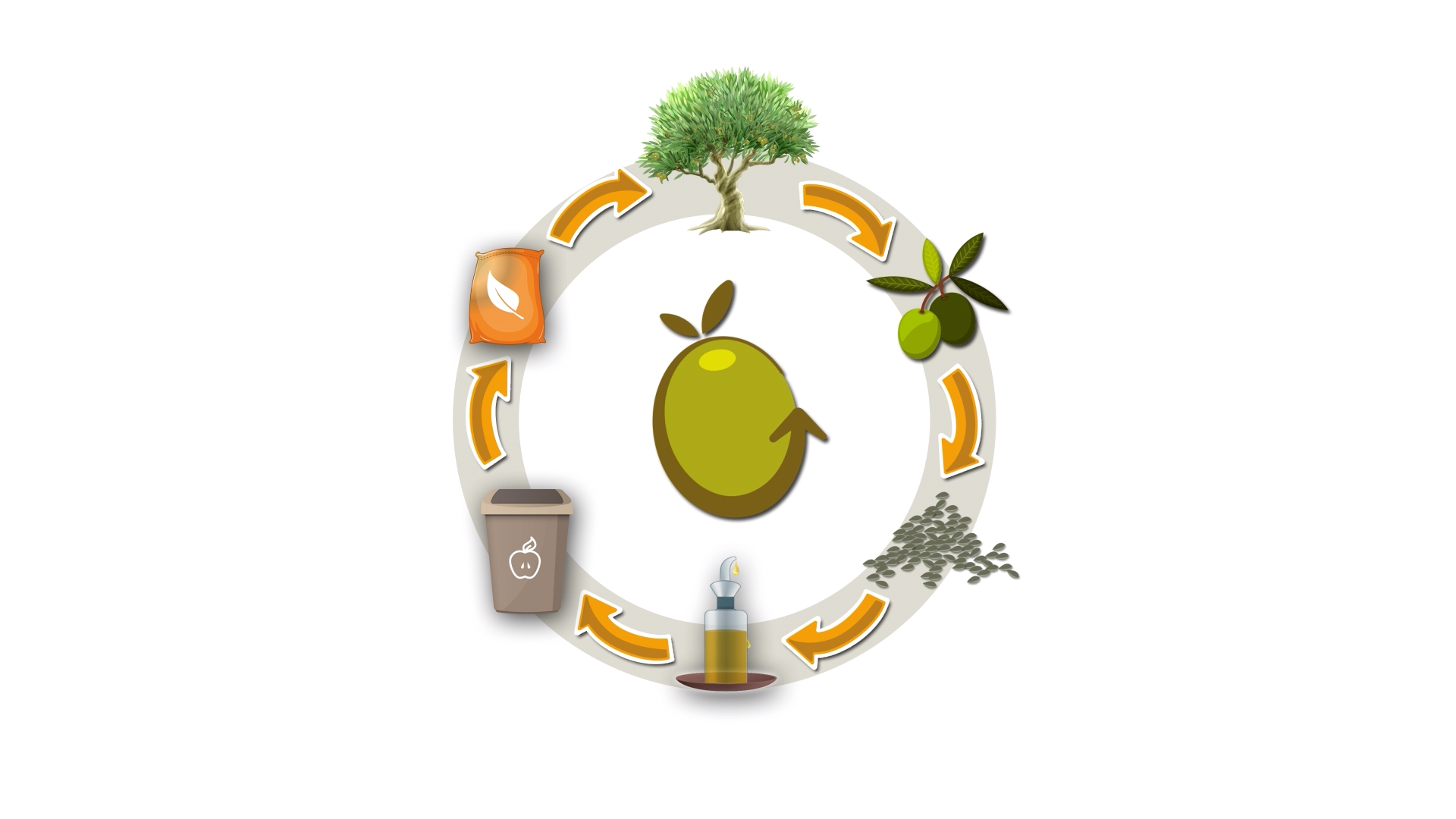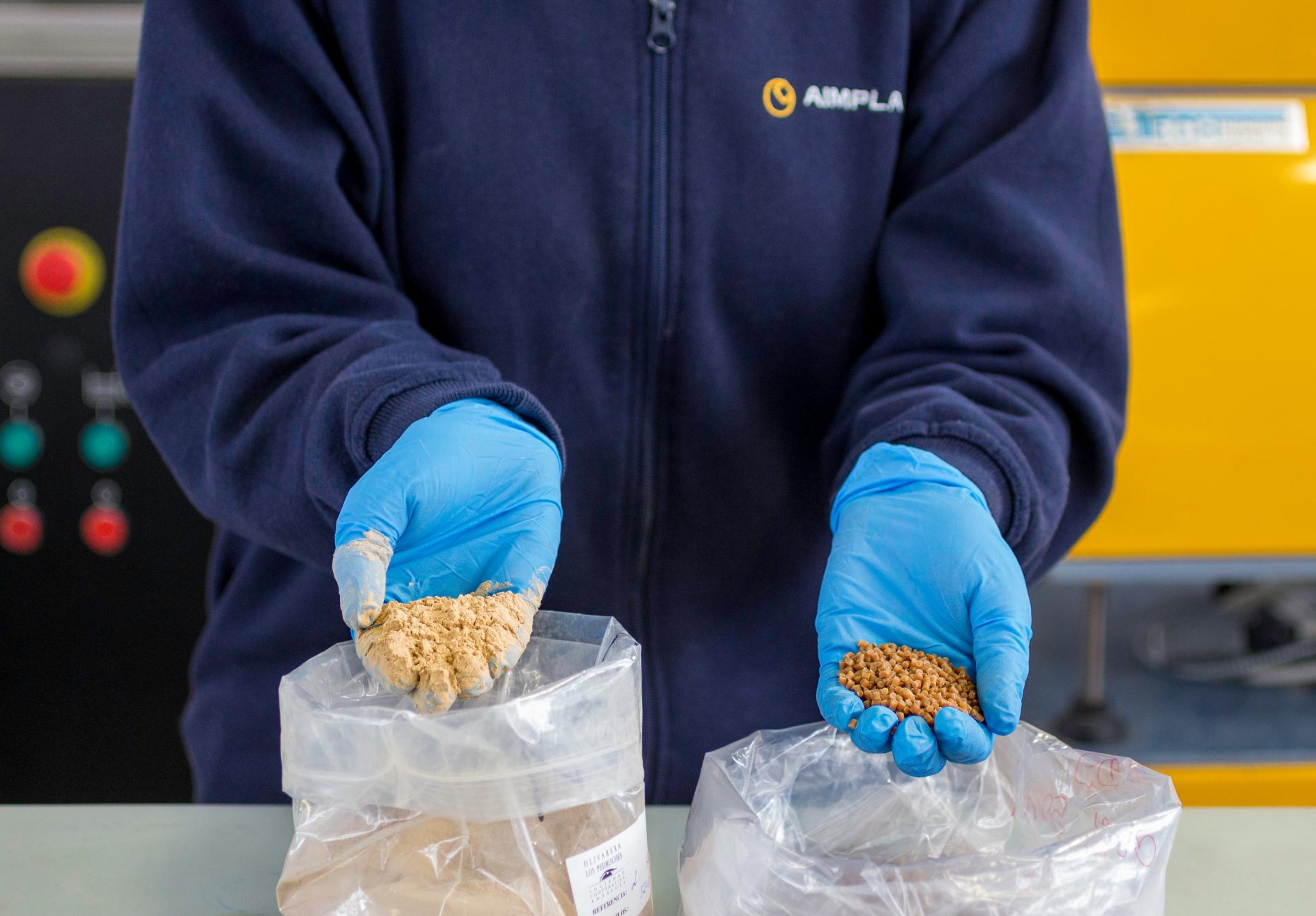GOOLIVA
Basic information
Project Title
Full project title
Category
Project Description
GO OLIVA aims at transforming the olive oil industry by introducing a new application with high added value from a waste (olive stones). Oliplast is the new biodegradable, compostable plastic material composed of a matrix from olive stones and a thermoplastic material. It can be processed by extrusion or injection for the production of new products (seedbeds,...) to be introduced in the value chain of the olive oil industry contributing to its circularity.
Geographical Scope
Project Region
Urban or rural issues
Physical or other transformations
EU Programme or fund
Which funds
Description of the project
Summary
Every year, the production of olive oil generates a volume of by-products of 360,000 tons in Spain alone. This is the bone of the olive, whose main use today is to convert it into biomass for energy generation, which has a low added value. GO OLIVA project goes in line with the circular economy paradigm promoted by the European Commission, which seeks to reduce the amount of resources used by the industry to manufacture new products and respond to the waste it generates. It is a collaboration between the Cordoba ecological cooperative OLIPE, and AIMPLAS, Plastics R&D Centre, with the aim of finding an application with high added value for this by-product to obtain new bioplastic compounds. The resulting product, baptized as Oliplast, will be used to manufacture products related to olives and olive oil.
Key objectives for sustainability
- Objective 1. Promote an agricultural sector that uses resources efficiently and is economically viable, productive and competitive, has low emissions, is climate-friendly and resilient to climate change, and works towards ecological production systems and in harmony with essential natural resources on which agriculture and forestry depend.
The traditional use of the olive bone has been inextricably associated in recent years with the fact that it is fuel in incineration processes. To the extent that we can subtract part of these residues from the oil production process, from this polluting use cycle, although for the purpose of energy generation, we will be favoring a use that is more respectful of the climate and the environment. In addition, we will extend the ecological concept in which OLIPE is a national reference figure, not only to its main product, olive oil, but also to by-products related to packaging made from its olive residues.
- Objective 2. Improve processes aimed at protecting the environment, adapting to climate change or mitigating it.
The process developed in GO OLIVA project, will generate a circular and greener alternative to the current use of use of agricultural waste as fuel for energy use. So it will reduce the pollution caused by this power plants in the areas where they are located (mainly in sparsely populated rural areas), will contribute positively to the protection of the environment at a global level.
Key objectives for aesthetics and quality
Objective 3. Development of a 100% biodegradable material that can be used for different applications
A differentiating factor that allows the distinction of the material OLIPLAST is that it is totally ecological, both due to the content of olive stones and to the selection and use of biodegradable plastic materials of non-fossil origin. With this, the products resulting from this project are doubly valourized, on the one hand by being incorporated into new products, thus being recycled materials and later, at the end of their use, being materials for use in a composting plant. Therefore, turning it into material for the fertilization of the olive groves.
Key objectives for inclusion
- Objective 4. Development of a new business model for rural cooperatives such us OLIPE from a waste with low added value.
Obtaining new bioplastic materials implies a diversification for the agricultural and rural sector. Diversification means increasing the incomes and the ensurance of the sustainability of rural activities. Also the new business model develop is going to generate new jobs in the following years.
- Objective 5. Shorten the distance between the R&d Community and the needs of the agricultural, food and forestry sectors. Create links between cutting-edge knowledge and technology and farmers, forest managers, rural communities, businesses, NGOs and advisory services.
The collaboration between OLIPE and AIMPLAS brings the latest trends in the use of waste from natural sources in the production of parts with plastic compounds (also known as Wood Plastic Composites or WPCs) to a very specific tipology such us the olive stones. Making these technologies closer and accessible to the producers (farmers) also allows them to obtain further incomes not only limited to the production of oil.
Results in relation to category
GO OLIVA has successfully validated a new business model that can be integrated in the olive oil industry value chain in order to make it circular. Actually, at this stage, AIMPLAS and OLIPE are working on the next step, which is to work on the industrialization of project results by the generation of a small company, within OLIPE's matrix, in charge of the processing and exploitation of the productive process associated with the production of containers with bioplastics. Initially it is going to be used for its own use in secondary packaging for different applications in logistics and marketing of its oils, but later will be scaled to become suppliers of other organizations similar to OLIPE.
How Citizens benefit
GO OLIVA project with a very ambitious Communication and Dissemination Plan with presence both in specialized media but also in generalist media such us newspapers, radio, local tv,...) was able to reach a hugh number of citizens from Spain but also from other countries. More than 100 impacts in National and international Media have been counted during project exection. As a result, we have been contacted by many companies but also by universities and students interested in project results which has allowed us to start new collaborations that will work in this R&D line that we have started with GO OLIVA: the use of agriculture by products to develop biodegradables materias for specific applictions.
Physical or other transformations
Innovative character
As explained before, main use of olive bones is as biomass, other alternatives that are bein studied are: Development of cements for the construction sector, organic fertilizer, wood plastic composites (WPC).
GO OLIVA worked on the WPC R&D line, it has generated knowledge that will contribute to the following specific areas:
- The olive bone as it is collected from the oil milling process, has certain characteristics, both geometric and humidity, which have to be modified for its correct incorporation of plastic materials. This project has studied the optimal conditions for both the material itself and the parameters of the grinding process, which differs from other materials such as wood sawdust, kenaf or other natural fibers.
- Determination of the technical feasibility to incorporate the bone of the olive in plastic materials as a reinforcing load, and therefore, defining the best conditions of the process. As a result of this knowledge, it has been possible to obtain a relationship between the particle size of the olive stone flour and the percentage of its incorporation with both the aesthetic and physical-mechanical properties of the OLiPLAST material.
- Obtaining new biodegradable compounds with a wood-like appearance, increasing the range of potential applications within the packaging sector, it also can be extended to other sectors.
- Results on the compostability of the OLiPLAST material in accordance with the EN 13432 standard. Environmental comparison of the process of obtaining final products obtained with OLiPLAST versus the industrial valorization of the olive stone and with other products made with materials of fossil origin, showing its impact on climate change and the accumulated demand for fossil energy.
Learning transferred to other parties
The successful development of OLIPLAST material from olive stones processable by commonly use industrial equipments has a lot of potential for transference at different levels:
- Olive stones, as indicated before, are genereated by a lot of olive oil producers who will now have an alternative to valorize this residue.
- It opens up another R&D field related with the study, treatment, adaptation of different agricultural wastes to develop different WPC materials. Wastes such us other fruit bones (avocado, almond, nuts,...), pruning wastes, vine shoots,... With GO OLIVA approach, there are a lot of agricultural sectors that can develop new business models from their wastes.


